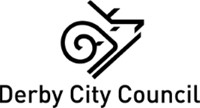Migrants in Derbyshire and Nottinghamshire are more likely to start their own business, and more than half are educated to at least GCSE level, says new research commissioned by the D2N2 Local Enterprise Partnership.
D2N2’s research into emerging migrant communities’ impact on the society and economy of Derby, Derbyshire, Nottingham and Nottinghamshire – the area for which the private sector-led LEP works to promote economic and jobs growth – was to better understand how new migration patterns should inform its economic strategy, and skills and training needs connected to this.
Researchers focused on emerging, rather than established, migrant communities; defining emerging migrant communities as: “People coming into the UK, who change the dynamics of a neighbourhood. This change may come about because of the scale of migration, language barriers, actual or perceived cultural differences to the established community and no existing or at best a peripheral connection to a locality or social network.”
Report authors S4W Ltd and Richmond Baxter Ltd analysed national and regional data, including the UK Census and labour market information, spoke to businesses and business bodies including the East Midlands Chamber and Federation of Small Businesses; met with community and voluntary services, and conducted an online survey of 27 CVS organisations; held direct interviews with members of 14 organisations; and used findings from other recent studies.
A D2N2 steering group – including City College Nottingham, Community Action Derby, NG7 Training and Employment Action representatives – oversaw the study. It built on 2015 work by Equality Challenge, a Nottingham-based partnership addressing difficulties faced by new arrival, minority ethnic and disadvantaged communities.
An online copy of the D2N2 ‘Emerging Communities’ research research report can now be read on the LEP’s website at www.d2n2lep.org/Growth/Evidence-Base
Key findings of the D2N2: Economic and Social Impacts of Emerging Communities in Derbyshire and Nottinghamshire research report were:
- The D2N2 area has proportionally seen far less migration than the UK as a whole. The 2011 national Census showed 13% of the UK population was born outside the UK, compared to 7.7% in the LEP’s area – or around 162,000 of the 2.1million people living in Derbyshire and Nottinghamshire. However, 58% of all the D2N2 area’s non-UK born residents lived in Nottingham and Derby (with a growing population also in Mansfield).
- Migrants from more than 100 countries have moved to the D2N2 area; but emerging migrant communities are largely formed by economic migrants from European Union ‘accession states’ – countries which joined the EU during more recent member expansions (2004 and after) – and by people from the Middle-East and North Africa, due to geo-political tensions. In 2015/16 of the 16,263 overseas nationals in the D2N2 area who registered for National Insurance numbers the largest number were from Poland (4,344) followed by Romania (3,301), Italy (818), India (793) and Spain (481). Nigeria ranked 12th in terms of most nationals registering, with Sudan 20th and Eritrea 27th. New migration from well-established routes to the UK, including India and Pakistan, also remain important.
- Most migrants are of working age; with almost 70% aged from 16 to 64, and almost a third of the total aged 16 to 24.
- Over a third of migrants had Level 4 qualifications or above (Higher Apprenticeship or BTEC equivalent), a further quarter had Level 1 to 3 qualifications (lower GCSE to A-level equivalent), and a quarter some other qualification.
- But there was a split in the type of work done by migrants. Those from new emerging communities and EU accession states (see above) tended to do low or unskilled occupations, in contrast to the higher skilled roles of migrants from EU14 countries which joined the EU before 2004; such as France, Germany, Greece, Italy, Portugal and Spain.
- Language skills remain a major barrier for migrants to jobs and career progression. An estimated one-in-five non-UK born residents surveyed suggesting they have a poor command of English.
- Business organisations expressed concerns that any tighter future migration policy may affect the recruitment of skilled and unskilled workers; particularly affecting the agriculture and food manufacturing, health and social care, and manufacturing and construction sectors.
- Migrants were more likely to set-up their own business, compared to the national average. In the UK population as a whole 10.1% of people are self-employed, compared to 10.3% of migrants in the UK – a small increase – but this rose to 15% self-employment among migrants from EU accession states only (those countries which joined the EU after 2004).
- Migrant businesses are often in sectors not usually eligible for public support. Their owners are often unaware that there is business support, or of the agencies which provide it and whether they would qualify for assistance.
- Within Derbyshire and Nottinghamshire the employment rate for ‘white’ non-UK nationals is around 78% and for ‘ethnic minority’ non-UK nationals 56%. Despite some data confidence issues, it would appear that nationality is not as large a determinant of employment as ethnicity for both existing and migrant communities. Outside of language barriers, back to work and employment issues are similar for individuals from traditional migration routes.
- Less than a third of organisations surveyed felt new emerging migrant communities were displacing jobs and services from existing UK communities, including representatives who may have once been migrants themselves. National studies were found to be inconclusive as to whether migrants displace job opportunities or impact negatively on wage levels. No direct evidence of this occurring could be found in the D2N2 LEP area.
- Whilst there are a range of services provided for asylum seekers and refugees, many recent economic migrants were in employment and had little need to draw upon wider public services. Many migrants also came from countries with fewer public services, or even where there was mistrust of them, and being generally of working age were therefore less likely to need services. Where support is needed, it is frequently the same type of support needed by people in established and indigenous communities, but access can be complicated by language and cultural factors.
- Cohesion between communities which had seen a rapid increase in their migrant population was raised as an issue by community organisations, service providers, employers and business organisations; as affecting both society and the workplace.
Among the study’s recommendations were:
- D2N2 to work more with local partners, employers, further education colleges, and skills and training providers to provide more functional English language training; to meet employers’ workplace needs and support migrants in accessing jobs and career progression. This should include providing courses run outside normal hours and in places accessible to migrants who often work unsociable hours in out of the way locations. D2N2 should look at investment from its EU funding for this.
- Raise awareness amongst migrant business owners of the support available to grow their businesses, make that support more accessible to these communities and support employers to manage culturally diverse workforces.
- Organisations delivering ‘mainstream’ business or community support programmes or services should ensure these are accessible to all potential beneficiaries, including members of migrant communities. They should employ robust equality and diversity practices, and demonstrate cultural awareness in delivery.
- Illegal and exploitative working practices, particularly ‘modern slavery’, not only harm workers but undermine those D2N2 businesses which behave legally and morally. D2N2 is a business, rather than legal enforcement, organisation but it and its partners have a role to play in working with police ‘anti-slavery’ programmes; to promote businesses’ awareness of issues, in their own workplaces and in supply chains.
- In developing strategies and delivery programmes, particularly using European funds, D2N2 and partners should consider how social cohesion and long-standing economic disadvantage can be effectively addressed in areas, particularly those with recent rapid expansion in migrant communities.
Peter Richardson, Chair of the D2N2 Local Enterprise Partnership, said: “Migration is a key influence on UK society and its economy. It was essential that D2N2 commission research into the emerging migrant communities in its area, to inform our economic and employment strategies.
“Migration patterns are complex and changing, but this new research has solid recommendations which could help both employers and migrant workers.”
Hassan Ahmed, Chair of Equalities Challenge and Chair of the D2N2 research project Steering Group, added: “I am pleased to have worked with the D2N2 LEP on this important research project. It shows that emerging migrant communities are, by and large, looking after themselves. They may have untapped entrepreneurial spirit, be under-employed or may wish to improve their English, but on the whole they enjoy relatively high employment rates.
“This report makes recommendations to help unlock the full economic potential of established and emerging migrant communities in D2N2, and I look forward to seeing its recommendations implemented.”
An online copy of the D2N2 research can now be read on the LEP’s website at www.d2n2lep.org/Growth/Evidence-Base
For More Information on the above release, please contact: | ||||
|---|---|---|---|---|
Sean Kirby D2N2 Communications Manager 01159 578749 |  | Sam Burbage D2N2 Social Media and Marketing Officer 01159 578254 | ||
Find us on: | ||||
| Google+ | ||||





























